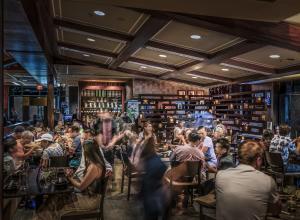Research
Orlando Insights
Hotel Bookings Down Considerably Through August: Advance bookings in Orlando’s hotels continued to slide as potential travelers delay making plans amid the uncertainty caused by the coronavirus. Compared to this time last year, May is down 59.2%, while June is behind 33.3% and July and August are down 21% and 18.8%, respectively. On a positive note, September is still showing a 4.6% increase, but October is showing a drop of 8.8%.
Occupancy Rate Among Nation’s Lowest: Hotel occupancy in metro Orlando fell to 12.5% for the week of April 4-10, down 85.1% from the same time last year, while average daily rate was $77 (-46%). Occupancy rates fell to 18.3% (-77.4%) in Florida and 21.6% (-68.5%) nationally. The highest occupancy rates were Norfolk-Virginia Beach (27.7%), Atlanta (25.5%) and Houston (24.3%).
Airline Seat Capacity Could Rebound in Summer: All major U.S. markets with direct flights to Orlando are seeing sharp declines in seat capacity for April (-47%) and May (-46%) when compared to last year. The situation begins to level off in June (-12%) before showing signs of a rebound in July (+4%) and August (+9%). Internationally, air service from Orlando’s top three countries (Canada, UK and Brazil) has virtually ground to a halt for April and isn’t forecast return to more positive levels until July. A word of caution: Airline schedules are highly fluid and revised frequently in response to demand, or the lack thereof.
Miss Our Research Webinar? Last week, we reviewed key travel industry indicators and forward-looking data on Orlando's travel industry, including how travel patterns from a past crisis could offer a glimpse into our future. If you couldn't join us, the presentation is available here.
National Research
Optimism on the Rise: Americans are starting to feel more optimistic that the worst of the pandemic is behind them. Staycations and road trips will increase as travelers say they will avoid airports in the coming months. For the first post-pandemic trip, “beach destination/resort” was in the lead with 38%, followed by “small towns, rural destinations” (30%). July and August are still the months with the highest number of vacations planned among American travelers, although later months this year are also showing gains compared to last year.
Travel Spending Down 85%: Travel spending in the U.S. continues to decline, but the rate is slowing. For the week of April 4-10, travel spending was just $3.3 billion, a drop of 85% from the same week last year. The U.S. travel economy has lost more than $60 billion in the past five weeks. Travel spending in Florida was $231 million last week (-89%), the nation’s second-largest drop behind Hawaii.
Insights into Our New Lives:
» 68% of Americans do not expect any dramatic changes in their travel/vacations, post-pandemic.
» Dining out was the top thing Americans missed the most (51%) followed by gathering with friends and family (49%) and shopping (39%).
» While the vast majority will be returning to the office and going out to dinners within six months (87% and 84%, respectively), only 64% will be willing to stay in a hotel and 56% to fly within the same timeframe.




